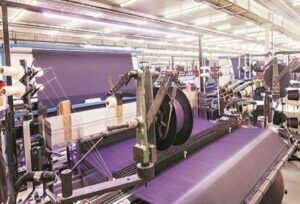Nigeria’s Manufacturing Sector Suffered N1.2 Trillion Loss in Four Years, Recovery Under Tinubu – Quartus Report
Nigeria’s Manufacturing Sector Suffered N1.2 Trillion Loss in Four Years, Recovery Under Tinubu – Quartus Report
By Busola Aro

A recent economic analysis by Quartus Economics has revealed that Nigeria’s manufacturing sector experienced a cumulative loss of N1.2 trillion between 2019 and 2023. However, the sector is now showing early signs of a turnaround, buoyed by recent policy reforms and economic stabilization efforts under President Bola Tinubu.
The report, titled “Inside Nigeria’s Quiet Recovery,” examines Nigeria’s economic performance following the National Bureau of Statistics’ (NBS) latest GDP rebasing. According to the study, Nigeria’s economy began to recover in 2024, rebounding from the dual challenges of the COVID-19 pandemic and the impact of the controversial naira redesign policy.
Quartus Economics reported that the economy grew by 4.1% year-on-year in 2024—a notable improvement after what it termed the “years of stall” from 2019 to 2023. During that period, the manufacturing industry declined by 21%, while agriculture and services recorded modest growth rates of 11% and 3%, respectively—both trailing population growth.
The manufacturing sector alone lost over N1.2 trillion in GDP during those four years, with more than half of the country’s 46 industrial categories shrinking in value. By the end of 2024, however, only 7 sectors remained in decline, signaling the beginning of a broader industrial revival.
Key Growth Drivers in Manufacturing
The report also highlighted specific subsectors that contributed significantly to the sector’s modest recovery in 2024, which saw a 1.19% year-on-year increase—translating to N207 billion in gains.
Leading the rebound were:
Food, beverage & tobacco: N81.5 billion increase (2.5%)
Chemical & pharmaceutical products: N33.9 billion rise (2.37%)
Non-metallic products: N15.5 billion growth (1.72%)
Motor vehicles & assembly: N1.29 billion gain (1.27%)
Basic metals: N3.33 billion uptick (0.62%)
Sectors Still in Decline
Despite the recovery, several areas within manufacturing remain under pressure. The textile, apparel, and footwear (TAF) industry saw a drop of N72 billion (1.58%), while oil refining recorded a sharp decline of 14.67%, amounting to N1.7 billion in losses.
Other struggling segments include:
Pulp & paper: minor gain of N1.23 billion (0.44%)
Electrical & electronics: slight rise of 1.27%
NBS Q1 2025 GDP Figures Reflect Sectoral Disparities
The NBS’s GDP report for Q1 2025 indicated a national growth rate of 3.13%, up from 2.27% in the same quarter of 2024. This growth was driven primarily by the services sector, which expanded by 4.33% and contributed 57.5% to GDP, compared to the industrial sector’s 21.08%.
In response, the Manufacturers Association of Nigeria (MAN) emphasized the need for the federal government to focus more on industrialization and manufacturing, arguing that true economic transformation can only be achieved by strengthening these foundational sectors.
TRENDING SONGS
 NPMA Appeals to Nigerian Government for Compensation After Lagos Market Fire
NPMA Appeals to Nigerian Government for Compensation After Lagos Market Fire
 Rest Every Four Hours, FRSC Issues Safety Guide for Fasting Motorists
Rest Every Four Hours, FRSC Issues Safety Guide for Fasting Motorists
 NNPC Boss Ojulari Bags UK Energy Institute Fellowship
NNPC Boss Ojulari Bags UK Energy Institute Fellowship
 Shock in Anambra: Bride Disappears Moments Before Wedding
Shock in Anambra: Bride Disappears Moments Before Wedding
 Nigerian Woman Returns ₦330 Million Accidentally Credited to Her Account
Nigerian Woman Returns ₦330 Million Accidentally Credited to Her Account
 APC Don Reach Morocco?’ VeryDarkMan Reacts to Seyi Tinubu Poster
APC Don Reach Morocco?’ VeryDarkMan Reacts to Seyi Tinubu Poster
 Bride Breaks Down in Tears as Wedding Meals Were Kept Secretly While Guests Go Home Hungry
Bride Breaks Down in Tears as Wedding Meals Were Kept Secretly While Guests Go Home Hungry
 Odogwu by Day, Robber by Night: How Marriage Joy Turned Into Tragedy
Odogwu by Day, Robber by Night: How Marriage Joy Turned Into Tragedy
 Nigerian Officials Allegedly Pocket N4–6B Weekly Through Smuggling Cartels at Seme–Badagry Border
Nigerian Officials Allegedly Pocket N4–6B Weekly Through Smuggling Cartels at Seme–Badagry Border
 Ahmad Yerima: Naval Officer to Face No Sanctions After Clash with Wike – Matawalle
Ahmad Yerima: Naval Officer to Face No Sanctions After Clash with Wike – Matawalle
Share this post with your friends on ![]()













